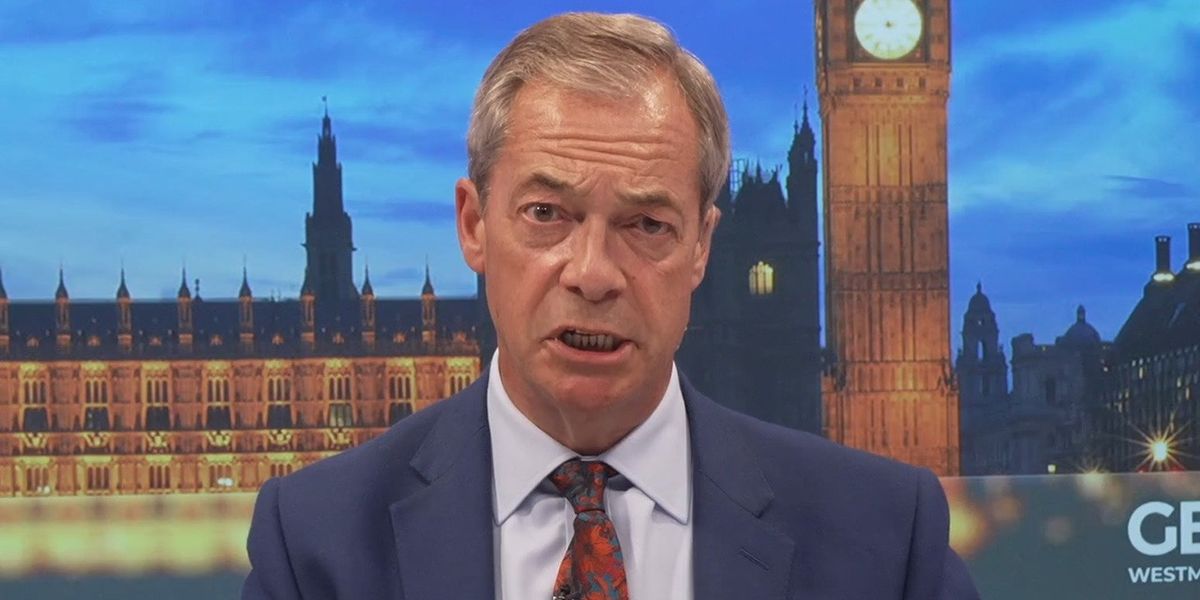Nigel Farage Breaks Silence on Allegations Surrounding Southport Riots
In a recent appearance on GB News, Nigel Farage, the leader of Reform UK, addressed allegations regarding his involvement in inciting the riots that erupted following the Southport incident. This comes amid calls from a terrorism watchdog for increased transparency regarding terror suspects, highlighting a growing concern over the handling of sensitive information by public institutions.
The Southport Incident and Its Aftermath
The Southport attack, which involved a violent incident that left the community shaken, has been a focal point of national discourse. Following the attack, Farage took to social media to express his concerns about the lack of information being shared with the public. He questioned whether the truth was being withheld, particularly in light of another violent incident involving the stabbing of an army lieutenant in Kent.
Farage’s comments came at a time when public trust in authorities was waning, and the absence of clear communication only fueled speculation and unrest. He argued that the "information vacuum" created by the authorities contributed to the escalation of violence, leading to widespread rioting across the country.
Calls for Transparency
The terrorism watchdog’s report emphasized the need for transparency in the handling of information related to terror suspects. The report suggested that the lack of clarity surrounding the Southport incident "incited, enraged, and inspired" individuals to commit acts of violence. Farage echoed these sentiments, asserting that had the public been informed about the background of the perpetrator, the riots may not have escalated to the extent they did.
Reflecting on the case of Calocane, a triple murderer from Nottingham, Farage highlighted that a senior doctor had warned authorities about the potential for violence if he were released. This revelation raised further questions about the decision-making processes within law enforcement and government agencies.
Farage’s Response to Criticism
In his interview, Farage did not shy away from addressing the backlash he received following the riots. He expressed his frustration over the "appalling abuse" directed at him by various public figures, including current and former Members of Parliament. Farage called for apologies from those who accused him of inciting the violence, listing prominent names such as Anna Soubry, Brendan Cox, and Angela Rayner among others.
He articulated his belief that the criticism was unfounded and that his calls for transparency were justified. "I’ve got to tell you folks, that is exactly what I was saying. Tell us the truth," he stated, emphasizing the need for accountability from government and police officials.
The Importance of Trust in Public Institutions
The remarks made by Jonathan Hall KC, the author of the watchdog report, underscored the significance of maintaining public trust in institutions. Hall warned that trust should not be taken for granted, especially in times of crisis. He stressed that when significant events occur, it is crucial for the police, government, and media to communicate openly with the public to prevent the rise of conspiracy theories and misinformation.
The report’s conclusions resonated with Farage, who believes that the failure to provide timely and accurate information has broader implications for societal stability. He argued that the government’s handling of the situation contributed to the severity of the riots and called for a reevaluation of communication strategies in crisis situations.
Conclusion
Nigel Farage’s recent statements regarding the Southport riots and the subsequent fallout highlight a critical intersection of politics, public safety, and the need for transparency. As the nation grapples with the implications of these events, the call for accountability and open communication remains paramount. The ongoing dialogue surrounding the role of public institutions in managing sensitive information will likely shape future discussions on governance and public trust in the UK.
